No, it totally does not. But that’s the best I can do at an American equivalent. In fact, Eid is actually more like Christmas and Easter rolled up into one. Most significantly (for a hungry expat such as myself), Eid signals the end of Ramadan, a month of religious observation that includes fasting during daylight hours. Ramadan is a little rough–Muslims don’t eat or drink during the day, but then stay up late into the night breaking the fast with an iftar dinner. You can imagine the effect this has on worker productivity.
My team was in fact a little groggy all month, but were still so cheerful I could not believe it. Anyone who has seen me delay breakfast by even 30 minutes knows what a grumpy, rotten mess I would be if I had to fast for a whole month. As it was, what Ramadan meant for me was feeling guilty mowing down Chinese noodles in the hallway every day at lunch so my staff couldn’t see or smell them.
So that’s all over now, and all the restaurants are open again for lunch. (yay!) Since there are only about 7 restaurants in Islamabad that I go to on a regular basis, having most of those cut out of the mix during Ramadan really hurt.
Maybe it is the month of fasting beforehand that makes Eid seem especially joyous and welcome. It lasts for two days, has something to do with a new moon sighting, and is a general time of religious celebration and eating and gifts and spending time with family. (See? Sounds like Christmas.) Women decorate their hands with henna like at weddings, and most people go home to their villages for the holiday, which leaves Islamabad a little empty (like Washington DC, very few people are actually from Islamabad).
Being in someone else’s country on their holiday is a strange experience. This is especially true for a holiday that is family-centered. It is easy to jump right on board a good ole independence day celebration anywhere. On Pakistan’s independence day, August 14, we joined in simply by roaming the streets, enjoying the fireworks, and avoiding the small pockets of anti-American sentiment. New Year’s Eve and even St. Patty’s Day are global in lots of ways. But a religious-oriented, gift-giving, family hoopla type of holiday doesn’t leave much room for outsiders.
It makes me think about Thanksgiving, and how much I enjoyed hosting Thanksgiving dinners in Boston over the last five years. We always invited our British friends Paul and Julie and had a great time introducing them to the “overstuff your face for two hours and then lie around the couch” joys of that particular holiday. And teaching them the importance of turkey, and cranberry sauce, and pumpkin pie, and flourless chocolate cake (well, we just added that one in to be respectful of our gluten-free guests). But it was lovely to share our traditions with new people who hadn’t experienced them before.
My Eid in Pakistan was a little less festive. I mostly celebrated by stocking up on canned goods and bottled water like there was an earthquake coming (I was told all the stores would be closed for the holiday weekend), and watching pirated DVDs. I think my real celebration came on the day after Eid, when my favorite coffee shop was open again for brunch and I could chow down on a real green salad and a frothy frappuccino-like drink. Every good holiday is about the food.



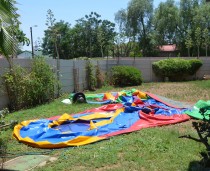


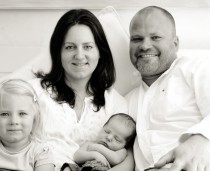
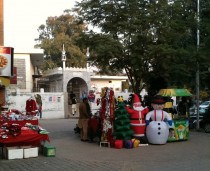

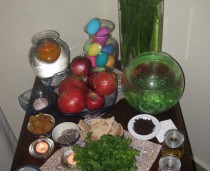
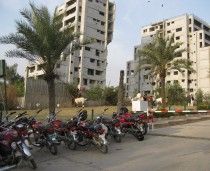
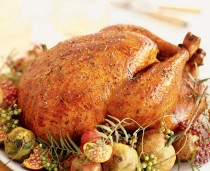
6 Comments